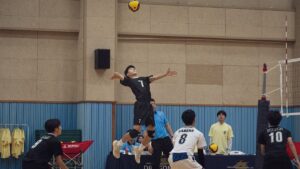Discover the Unexpected Ways Mental Fitness Can Transform Your Game
When we think of athletic prowess, our minds often drift to physical attributes: speed, strength, agility. But what if I told you that the secret weapon in an athlete’s arsenal might just be something less tangible? Mental fitness. It’s the unsung hero of sports performance, lurking in the shadows while muscles and sinews take center stage. And the truth is, the impact of a strong mental game can be as transformative as any workout routine.
Understanding Mental Fitness
So, what exactly is mental fitness? At its core, it encompasses a variety of psychological skills that contribute to an athlete’s performance. Think of it as the mental equivalent of physical conditioning. Just as one trains their body through repetitive exercises, mental fitness is cultivated through practices that enhance focus, resilience, and emotional regulation.
Some might argue, “Isn’t that just sports psychology?” Well, yes and no. While sports psychology focuses on understanding the mental aspects of performance, mental fitness is about actively training the mind to improve an athlete’s game. It’s about practicing mindfulness, visualization, and even emotional intelligence. (I remember attending a workshop once, where a coach emphasized that just like we warm up our bodies, we should warm up our minds. It struck me how often we overlook this crucial aspect.)
The Science Behind the Mind
A plethora of studies supports the idea that mental fitness can boost athletic performance. Research indicates that mental training can lead to improved concentration, reduced anxiety, and greater overall satisfaction in sports. A significant number of elite athletes have adopted mental training as a regular part of their regimen, and the results speak volumes.
For instance, a study published in the Journal of Sports Psychology found that athletes who engaged in regular visualization techniques showed a marked improvement in their performance levels compared to those who didn’t. It’s fascinating to consider how the brain can create neural pathways through visualization—essentially training itself without any physical exertion. This isn’t just a feel-good concept; it’s science.
Building Resilience Through Mental Fitness
One of the most underrated aspects of mental fitness is its ability to build resilience. Resilience, that magical quality that allows us to bounce back from setbacks, is particularly vital in sports. Athletes face countless challenges—injuries, losses, and the pressure of competition. Developing a strong mental framework can mean the difference between a fleeting setback and a career-defining comeback.
Take the story of Olympic swimmer Michael Phelps. After an unexpected defeat at the 2008 Olympics, he faced intense media scrutiny. Many would crumble under such pressure, but Phelps, with his mental fitness training, turned the situation into an opportunity. He refocused, adopting a mental strategy that included visualization and positive affirmations. His subsequent victories are a testament to the power of resilience.
Tips for Cultivating Resilience
- Practice Mindfulness: Regular mindfulness exercises can help athletes stay grounded and focused during high-stress situations.
- Set Realistic Goals: Setting achievable goals helps maintain motivation and prevents feelings of discouragement.
- Embrace Failure: Rather than fearing failure, view it as a learning opportunity. Reflect on what went wrong and how to improve.
Focus: The Athlete’s Edge
Focus is another critical component of mental fitness. In a world full of distractions—be it social media, crowd noise, or even internal chatter—maintaining concentration is paramount. Athletes often need to summon laser-like focus in the heat of competition, and mental fitness plays a key role in achieving this.
Consider the example of tennis superstar Serena Williams. Known for her incredible focus on the court, Williams attributes much of her success to her mental training. She practices techniques that help her tune out distractions and remain present in the moment. (I can’t help but chuckle at the thought of her blocking out the sounds of the crowd—impressive, right?)
Strategies to Enhance Focus
Here are a few strategies athletes can employ to sharpen their focus:
- Breath Control: Simple breathing exercises can help calm the mind and improve concentration. Try inhaling for a count of four, holding for four, and exhaling for four.
- Pre-Performance Routines: Developing a consistent routine before competitions can help signal to the brain that it’s time to focus.
- Visualization: Imagine yourself successfully completing your performance. This mental rehearsal can enhance confidence and focus.
The Power of Visualization
Visualization is perhaps one of the most powerful tools in the mental fitness toolbox. It’s not just daydreaming; it’s a technique that athletes use to mentally rehearse their performance. By vividly imagining themselves executing plays, making shots, or crossing the finish line, athletes can create a mental blueprint for success.
One study found that athletes who practiced visualization techniques improved their performance by as much as 20%. That’s a significant number! It’s a bit like watching a movie in your mind where you’re the star—who wouldn’t want to enhance their game with a little mental magic?
How to Practice Visualization
If you’re wondering how to get started with visualization, here are some tips:
- Find a Quiet Space: Choose a calm environment free from distractions.
- Close Your Eyes: This helps eliminate visual distractions and allows you to focus inward.
- Imagine Every Detail: Envision every aspect of your performance, from the sounds to the feelings.
Emotional Intelligence: The Unsung Hero
Emotional intelligence (EI) is another surprising facet of mental fitness that can dramatically impact athletic performance. It refers to the ability to recognize and manage one’s emotions, as well as the emotions of others. Athletes with high emotional intelligence can navigate the emotional rollercoaster of competition more effectively.
Let’s take a look at basketball player LeBron James. He’s known not only for his physical skills but also for his emotional intelligence on and off the court. James has shown an uncanny ability to read the room—understanding when to push his teammates and when to encourage them. (Honestly, it’s like he has a sixth sense!) This emotional awareness can lead to better teamwork and improved overall performance.
Developing Emotional Intelligence
Here are a few ways athletes can enhance their emotional intelligence:
- Self-Reflection: Regularly take time to reflect on your emotions and reactions to various situations.
- Practice Empathy: Try to understand the feelings and perspectives of teammates and competitors.
- Stay Calm Under Pressure: Develop techniques to manage stress and anxiety during competitions.
The Role of Routine and Consistency
Consistency is key in both physical and mental training. Just as athletes benefit from regular workouts, mental fitness requires ongoing practice. Establishing a daily routine that incorporates mental training can yield significant dividends over time.
Many athletes find that dedicating just a few minutes each day to mental fitness can lead to noticeable improvements in performance. It’s like watering a plant; with consistent care, it flourishes. (And let’s be honest, who doesn’t love a flourishing plant?)
Finding Your Mental Fitness Coach
While self-directed mental training is valuable, working with a mental fitness coach—or a sports psychologist—can provide tailored strategies and insights. These professionals can help athletes develop personalized mental training plans, address specific challenges, and enhance overall performance.
Some might think, “Do I really need a coach for my mind?” Well, consider this: even the best professional athletes seek coaching for their physical skills. Why not for mental skills? It’s all part of the holistic approach to athletic success.
Conclusion: Embracing the Mind-Body Connection
As we explore the unexpected ways mental fitness can transform athletic performance, it becomes clear that the mind and body are intricately connected. Building mental strength doesn’t just enhance performance; it fosters resilience, focus, emotional intelligence, and a deeper understanding of oneself.
Whether you’re a weekend warrior, a seasoned pro, or just someone who enjoys the occasional game of pickup basketball, investing in mental fitness can elevate your athletic experience. Embrace the practices, experiment with techniques, and don’t shy away from seeking guidance. After all, every athlete has a story—and now, you have the tools to write yours with confidence.












